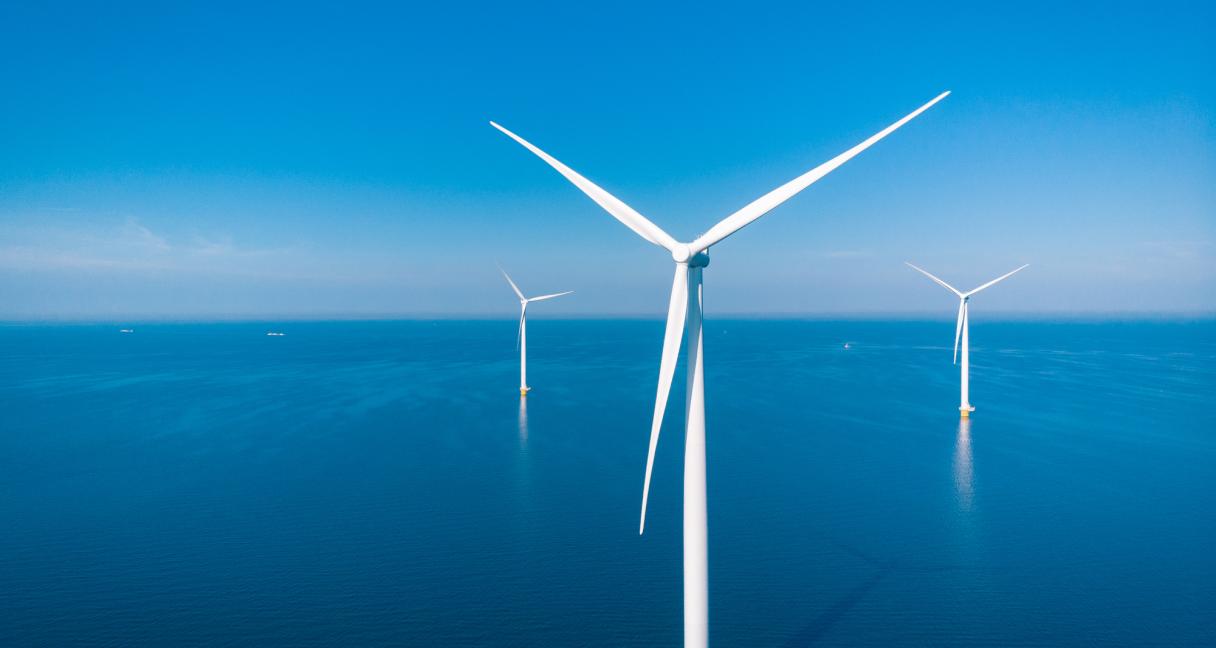Ignitis Renewables: the next generation will be building the green future
The purpose of international green energy company Ignitis Renewables is to facilitate the green generation breakthrough in the region. This breakthrough is critical for our mission to mitigate climate change, conserve nature and ensure energy security in the region. The company’s strategy foresees consistent development of wind and solar generation capacities, but it requires a new generation of professionals.
“While developing green energy capacities, we are increasing Lithuania’s energy independence and promoting renewable energy sources. However, our activities require competences, and there's a shortage of them not just in Lithuania but throughout Europe. Therefore, we are encouraging young people to choose energy studies and work together while solving climate issues and working towards sustainable development goals,” said Božena Petikonis-Šabanienė, Head of Human Resources, Baltics and Poland at Ignitis Renewables.
Ignitis Renewables is implementing the strategic goal of Ignitis Group of reaching 4–5 GW of installed green generation capacity by 2030. This goal aligns with the goal of the European Green Deal to become climate-neutral continent by 2050. It is estimated that working towards these goals will create around 2,500 new jobs for green energy specialists over a decade, and 1,500 of the jobs will be in the offshore sector.
“The competition among the companies developing renewable energy projects is growing in intensity, including their efforts to win over top talent. The current evolution of the energy sector is similar to what was happening in the IT sector 20 years ago. The traditional energy system used to be simple as the energy was generated, supplied and then consumed but recently the energy sector has been growing more and more complex as it’s being integrated in the economy through technologies and innovations,” said B. Petikonis-Šabanienė.
According to the representative of Ignitis Renewables, the current energy sector involves a variety of professions, from electrical or AI engineers to HR, communications, environmental or EV expansion specialists. People often choose the energy sector as it aligns with their values. It engages you and keeps you going. And it also challenges you as you need not only the knowledge but also leadership skills and a vision of the future.
According to Božena, Ignitis Group employs around 4,000 specialists working in 75 different professions. “Besides, we don’t even know some of the professions that will be necessary in the future, so a young person has every chance to contribute to the green transition, find meaning in their work and bring something of value to the world, where we live and where the generations after us will live,” underlines B. Petikonis-Šabanienė.
According to the Ignitis Renewables Head of Human Resources, this is the reason why companies took upon themselves to promote education. The initial results of their efforts have surprised them. The company participates in the #EnergySmartSTART programme. It's a programme for students and anyone who is interested in the energy sector. Energy companies that support the programme are implementing various initiatives, organise excursions, meetings with professionals, establish special scholarships, introduce people to career opportunities in the energy sector.
We are already seeing the first results of the programme. Students are now perceiving the energy sector more favourably. A lot more Lithuanian residents, including students, see career perspectives in the energy sector.
At the initiative of Ignitis Group, KOG Institute for Marketing and Communication Sciences has conducted a survey, and it showed that 72 percent of the respondents see career perspectives in the energy sector, which 5 pp higher than last year. 61 percent of the surveyed university students and 58 percent schoolchildren see the energy sector as attractive in terms of career opportunities. Compared to last year, their favour towards the sector has increased by 8 percentage points.




